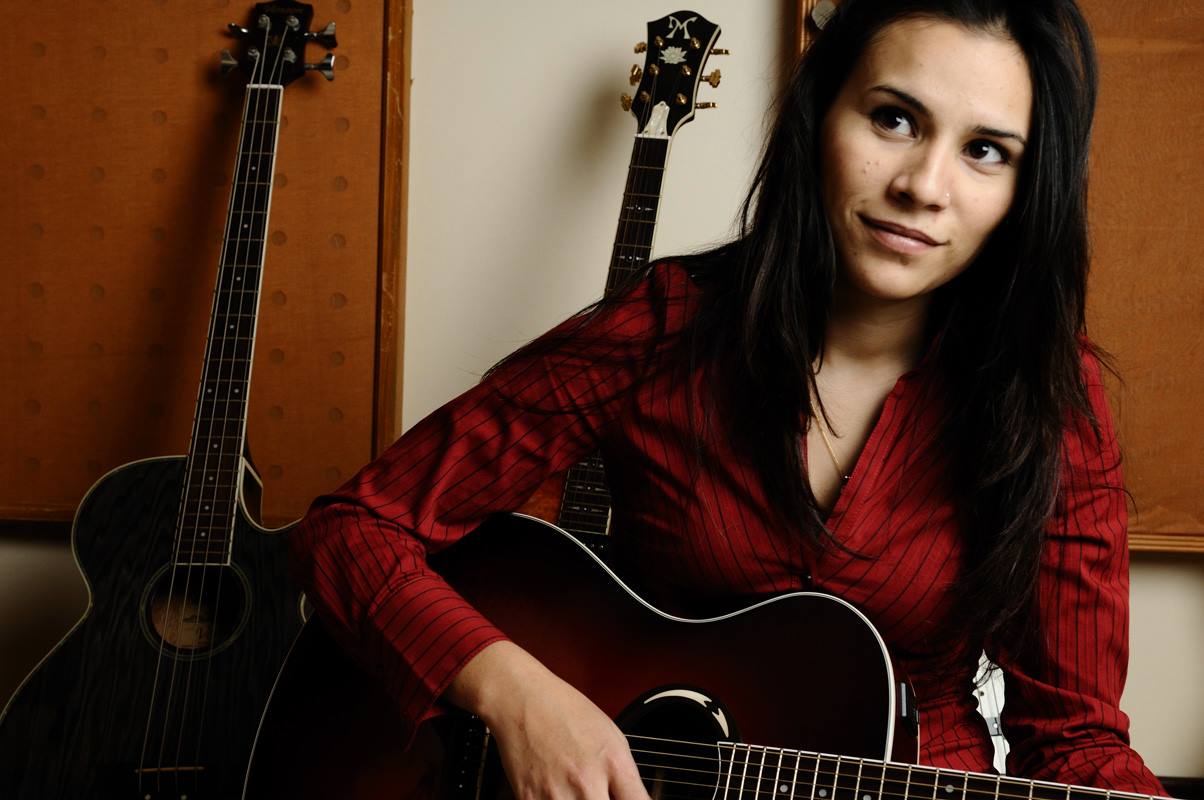The well-known singer-songwriter Zoe Viccaji said, “there are few things that women can do freely in Pakistan, and pursuing music is not one of them.” “It was only because I had faith in what I was doing that I could make strides in my career,” she claimed.
She spoke at a panel discussion titled ‘Women In Music’ at the US Consulate in Karachi. Flanked by Pakistani tabla player Abeir Shan, American musician Laura Jorgenson and University of Texas at Austin Associate Professor Sonia Tamar Seeman, Viccaji said she could inspire other Pakistani girls who want to chase their dreams. However, that doesn’t mean it’s all a bed of roses for the Coke Studio star. “I can travel and make my way around Pakistan because I have traveled alone. But if I ever visited Afghanistan, or Chitral for that matter, I would have to take a male companion with me,” she said. Viccaji repeatedly said that being told by their parents that there is a risk involved in whatever she does is difficult to deal with.
“Then there is another problem. The male musicians I meet are not always interested in my music. But, they end up being interested in me,” she said.
She recalled how female musicians face discrimination even in trivial situations: “I was once doing this jingle for a telecommunications company alongside Ali Zafar, who wanted me to adjust my vocal scale instead of him altering his own. So I ended up not doing that project.” Drawing parallels with her experience working with Strings, she said, “Bilal Maqsood was very understanding when it came to Bichra Yaar, and the song did well.
Also, speaking on the event arranged as part of Women’s History Month, Shan said she was always mocked for taking up ‘tabla’ playing.
While some questioned her taking a different career route after graduating from the Pakistan Institute of Fashion and Design, others discouraged her by saying that her interest is more of “pehelwaanon ka kaam” (a wrestler’s job). However, she seldom paid attention to the naysayers. “It was always about following my passion and not about where I would be paid,” she said, adding, “Society needs to revise the perception that girls are useless, weak and scared creatures.”
While Seeman also believes it is important for every woman to follow her heart, she highlighted the limited opportunities for female musicians compared to those at the disposal of their male counterparts. “Knowing how to use the equipment [instruments] itself is inspiring. However, people generally feel women are not as physically capable as men. They hence are more sensitive to power relations and get exploited,” she said. The academic said restricted opportunities are not the only problem; safety in public spaces is another important issue.
Jorgensen said that working in a male-dominated society makes it even more difficult for women to perform. “There’s a lot of difference between what women can and cannot do. There are too many stereotypes assigned to both genders in every society.”
Renowned ghazal singer Tina Sani was also among those present at the event. She raised the question of whether marriage deters women from their musical careers or not. “If a mother can do everything for the child, the father too can fill her boots at times,” responded Seeman.
Read: Zoe Viccaji’s new single Janay Do tries to #BringDiscoBack.






